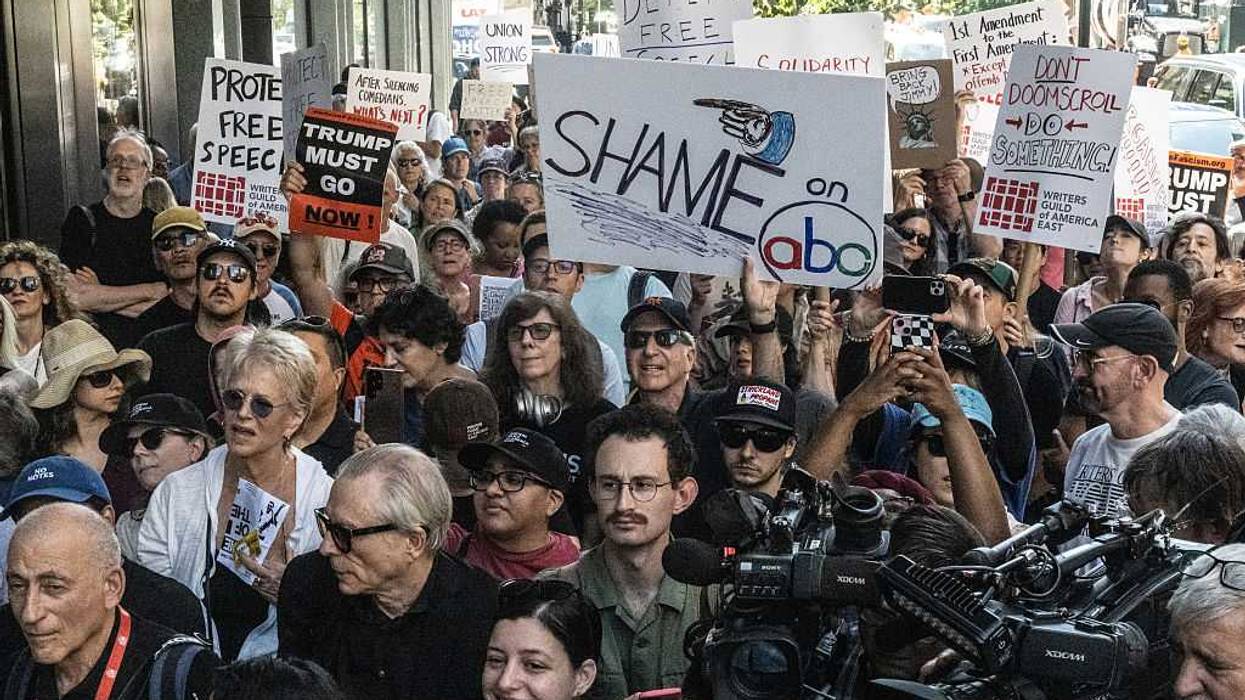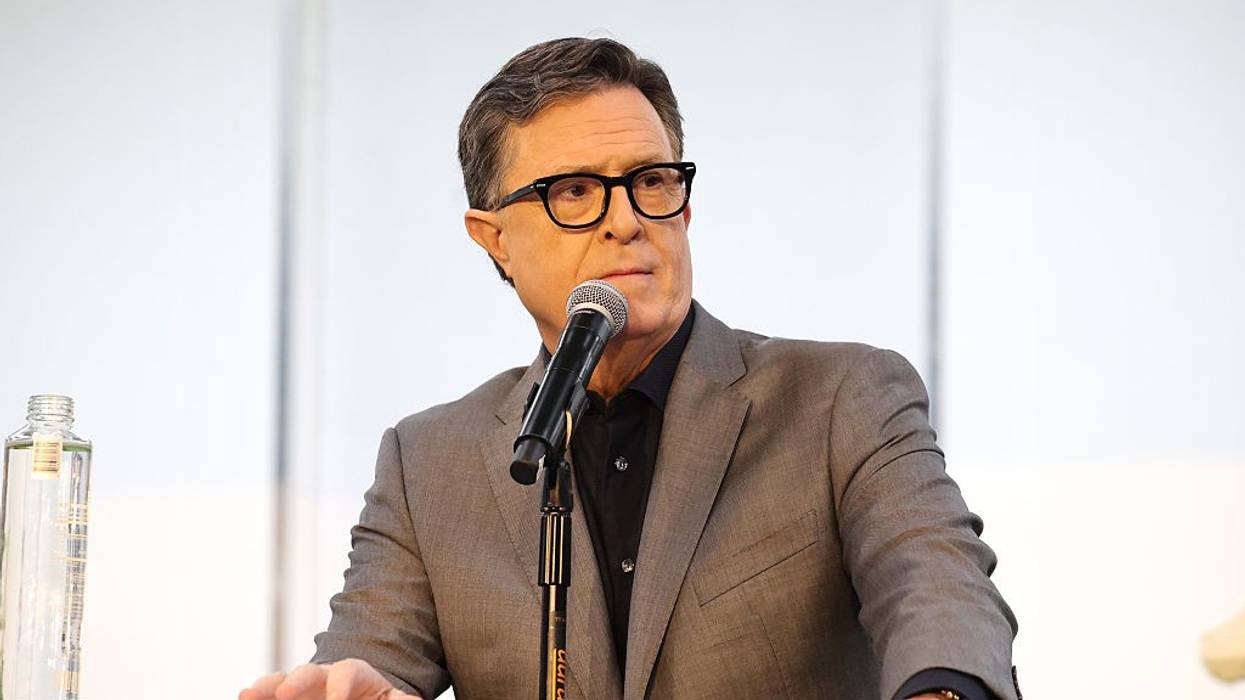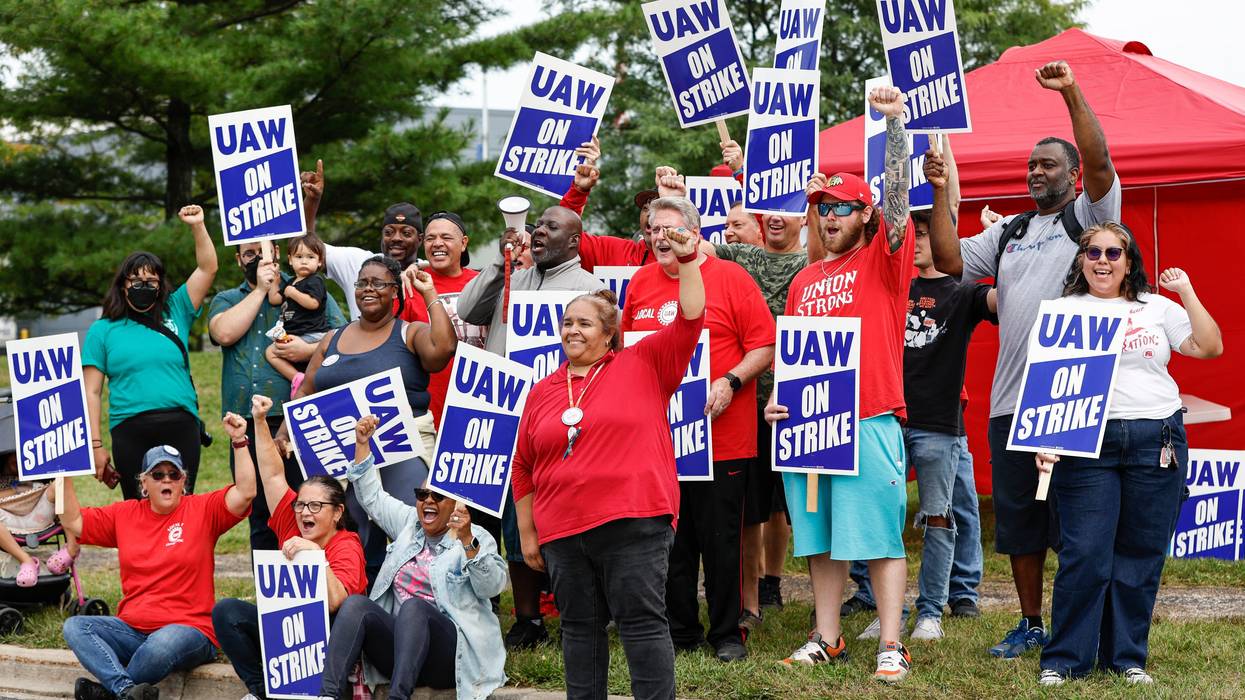After Kimmel Suspension, 400+ Entertainers Rip Government Campaign to ‘Pressure’ Them Into Silence
"In an attempt to silence its critics, our government has resorted to threatening the livelihoods of journalists, talk show hosts, artists, creatives, and entertainers across the board," the letter said.
After the Trump administration successfully pressured ABC to kick Jimmy Kimmel off the air last week, hundreds of artists signed an open letter Monday denouncing the government's campaign to "pressure" entertainers and journalists into silence.
The letter, organized by the ACLU, was signed by numerous household names, including Jason Bateman, Jamie Lee Curtis, Ariana DeBose, Jane Fonda, Maggie Gyllenhaal, Regina King, Julia Louis-Dreyfus, Diego Luna, Lin-Manuel Miranda, Natalie Portman, Olivia Rodrigo, Martin Short, and Ramy Youssef.
"Jimmy Kimmel was taken off the air after our government threatened a private company with retaliation for Kimmel’s remarks. This is a dark moment for freedom of speech in our nation," the letter says. "This is unconstitutional and un-American. The government is threatening private companies and individuals that the president disagrees with. We can’t let this threat to our freedom of speech go unanswered."
Jimmy Kimmel was taken off the air after our government threatened a private company with retaliation, marking a dark moment for free speech in our nation.More than 400 artists across our nation signed on to say: We refuse to be silenced by those in power.
[image or embed]
— ACLU (@aclu.org) September 22, 2025 at 11:02 AM
Kimmel's suspension came hours after the Federal Communications Commission chairman, Brendan Carr, threatened to revoke the broadcast license of ABC News affiliates unless the network pulled the comedian's late-night show off the air following comments he made criticizing the President Donald Trump's reaction to the assassination of right-wing activist Charlie Kirk.
Major entertainment unions have condemned Kimmel's suspension, including SAG-AFTRA and the Writers Guild of America, which organized demonstrations in Times Square and outside ABC's parent company Disney over the weekend that drew hundreds of protesters, while some actors have pledged to stop working with Disney until Kimmel is reinstated.
In subsequent days, Trump continued to issue threats to the media, suggesting that he would seek to strip the broadcasting licenses of networks that give him "bad press," saying, "They’re not allowed to do that.”
The letter says that "In an attempt to silence its critics, our government has resorted to threatening the livelihoods of journalists, talk show hosts, artists, creatives, and entertainers across the board. This runs counter to the values our nation was built upon, and our Constitution guarantees."
Members of the Trump administration, including JD Vance, have also promoted a wide-ranging campaign to have private citizens reported to their employers over critical comments they made about Kirk following his assassination.
Students for Trump National Chair Ryan Fournier created a database with tens of thousands of social media accounts and has boasted of having gotten dozens of people fired over their posts, many of which simply state disagreement with Kirk even without endorsing his assassination.
"We know this moment is bigger than us and our industry. Teachers, government employees, law firms, researchers, universities, students, and so many more are also facing direct attacks on their freedom of expression," the letter says. "Regardless of our political affiliation, or whether we engage in politics or not, we all love our country. We also share the belief that our voices should never be silenced by those in power—because if it happens to one of us, it happens to all of us."
Anthony D. Romero, executive director of the ACLU, described these blacklisting efforts as the dawn of "a modern McCarthy era" with Americans "facing exactly the type of heavy-handed government censorship our Constitution rightfully forbids."
Noting that former Sen. Joseph McCarthy (R-Wis.) "was ultimately disgraced and neutralized once Americans mobilized and stood up to him,” Romero said that "we must do the same today because, together, our voices are louder and, together, we will fight to be heard.”


